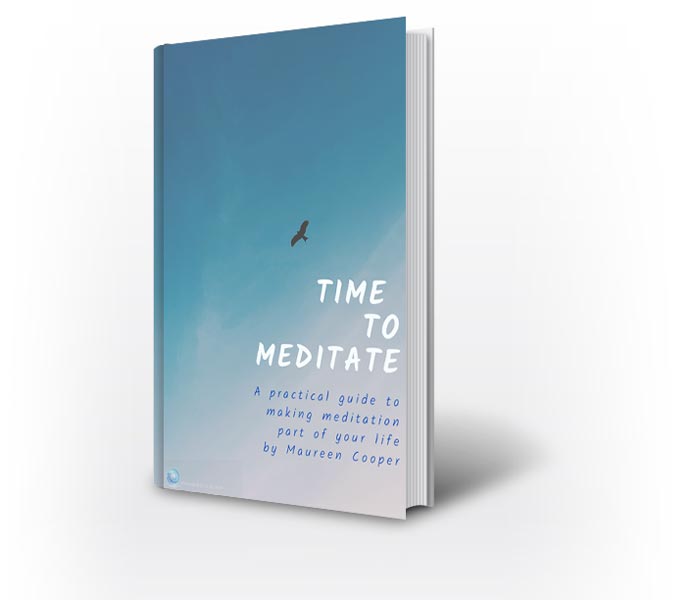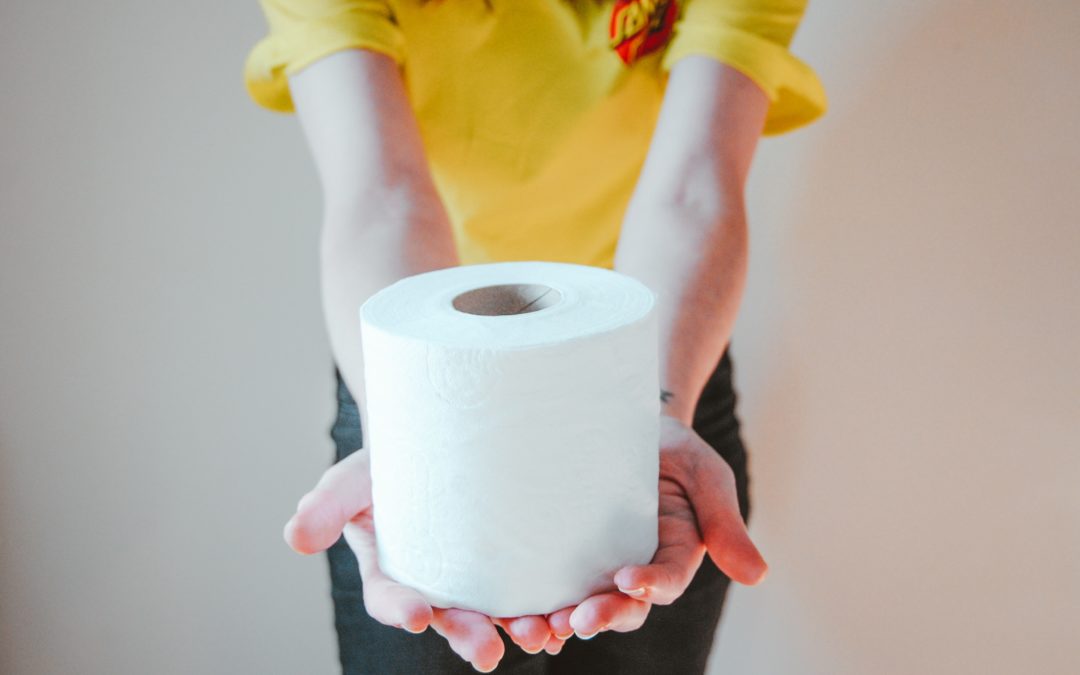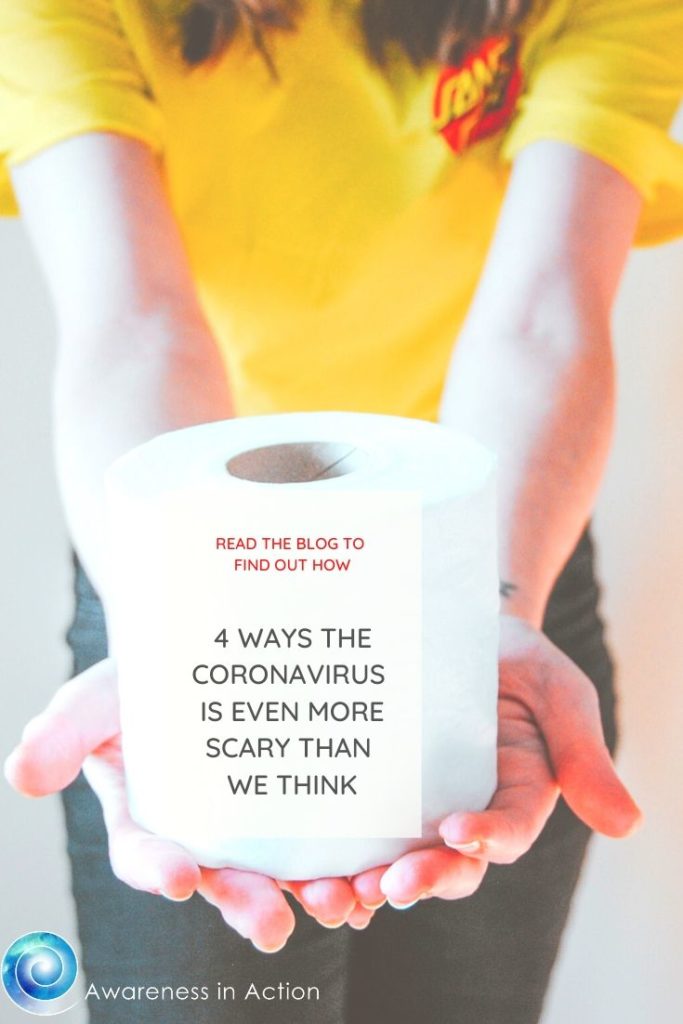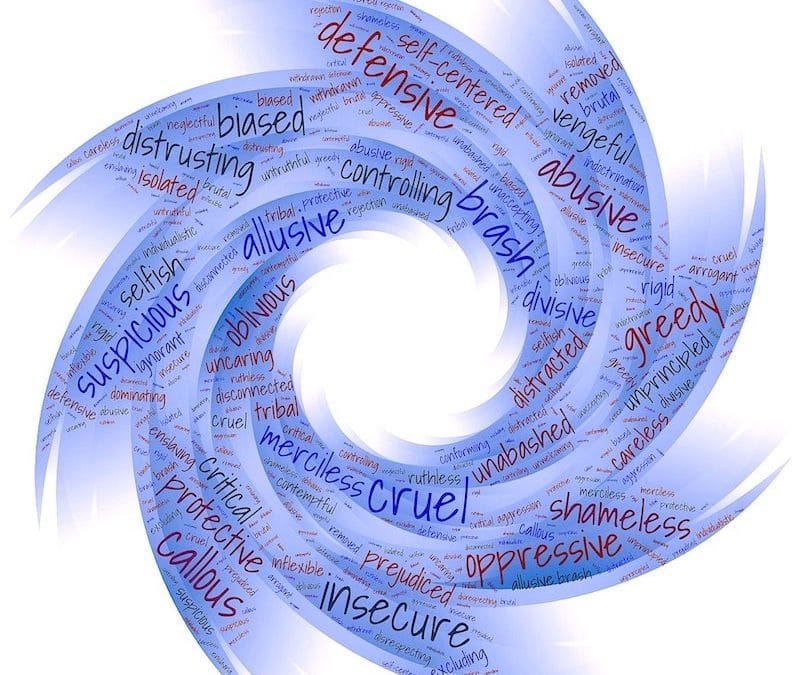
Can a Pandemic Make it Easier to Forgive?
As the Corona Virus story develops, I’ve found myself thinking quite a bit of what it means to forgive. It’s something about the intensity of the current situation that’s made me question some of my basic assumptions around certain relationships.
What’s to forgive?
We’re several months into the Corona Crisis now and the atmosphere has changed since it all began. To begin with there was a sense that we are all in this together. Our shared vulnerability brought us together and made us feel close. Sadly, as events have unfolded this closeness has been exposed on many levels as being only skin-deep.
Huge gaps have opened up between how countries choose to protect their citizens. The divide between rich and poor countries is echoed in the difference between how well-off families are coping and what it’s like for lower-income families. Frontline workers receive plenty or praise but, in many cases have not been given the protections they need to care for themselves as they fight the virus. Old people in care homes, along with their carers have been too often over-looked. Insidiously, the virus has proven to have an even more devastating effect on BAME citizens. The global economy is reeling.
We all have our views of how different sectors are dealing with the crisis. As a Brit living in the Netherlands, I am profoundly grateful for the no-nonsense, practical approach that I find here. With family and friends living in the UK, I am consumed with sorrow and worry. It’s all too easy to blame politicians for not taking enough care. Forgiveness seems in short supply.
Am I able to forgive?
There are politicians who inspire trust and confidence. When they get things wrong it’s much easier to understand that no-one is perfect and to want to forgive them. The whole process is helped along when people in the public eye are able to admit it when they get things wrong and focus on putting it right.
Part of the challenge is that we live in such polarised times. It troubles me that I only need to hear the name of certain public figures to feel upset, or even angry. How can I forgive someone that I do not trust?
Perhaps this is the very time to try to go deeper. Why would someone act in ways that are dishonest and self-seeking? Does it imply a person at ease with themselves and their world? Could there be a possibility for a compassionate approach here—to try to separate the person from their actions? When we feel threatened, or uncertain it’s all too easy to behave in ways that are not necessarily beneficial. It does not mean that there is not a person inside who wishes to manage better but is currently struggling.
My approach just now is to try and see the person behind the actions that I disagree with and to try to fathom their reasons for being the way they are. It’s not easy for sure but I want to try. My wish is to stand for what I belief in with fervour but minus the hostility. I want forgiveness to be my fall back position.
Buddhist teaching on Buddhanature
When I encountered Buddhism, I was attracted by the presentation of what is called Buddhanature. It’s the idea that each of us is fundamentally whole, fully aware, wise and compassionate by nature—in other words, perfect as we are. It’s kind of the opposite of original sin. The thing is that we do not recognise our nature for what it is. We get distracted and follow along with the products of that distraction—ego, neurosis, self-absorption and so on. That means that we can behave in all kind of unfortunate ways.
The Buddhist path is all about learning to access your Buddhanature more effectively. However, here’s the thing—everyone has Buddhanature, including those politicians who I can no longer trust. So, here is the source of my aspiration to separate the person from their actions and to cut down on judgment. If I can remember for a moment that a person’s nature is whole and full of potential, then I can feel regret when they are not living up to it. Just as I do with myself. That makes it easier to forgive.
Focusing on the personal
It’s a way to try and stay personal with someone. To remember that they are a human being, just like me. I call it ‘focusing on the personal’. It’s much easier to put into practice with people that you know.
I’ve had two recent examples of how being able to forgive brings about so much relief and ease. Over the last couple of years, I’ve been struggling with a feeling of hurt with a family member. Harsh words were exchanged, and other members of the family got drawn in. It was very uncomfortable. When lockdown began, I heard that this person was in isolation and all alone. Somehow this knowledge cut right through all my feelings of displeasure and judgment. I immediately picked up the phone and had the first real conversation that we had enjoyed for months. All the things that I had objected to seemed to be quite insignificant in the face of all that was going on with regard to the pandemic. It seemed that in fact, there really was nothing to forgive.
The second example is with a group of people that I work with. We’re a loosely connected bunch, who are being asked to work together more closely. As we’ve never really gelled in a creative way, there was a high level of apprehension. A member of the group suggested that we meet together and tell each other two or three things that we find inspiring about the way we work. The effect was powerful. In expressing what inspired us in each of the people in the group, a long history of mistrust seemed to be swept away. Again, it seemed that after all, there was nothing to forgive.
In my experience, the pressing background of the pandemic can act as a catalyst that makes it more possible to forgive but it takes attention and work.


You might be interested in this new zoom+online course which starts on 15 June 2021 HOW DO YOU WANT TO FLOURISH IN YOUR RIPE OLD AGE?
Awareness in Action is dedicated to building a community of people interested in living a life of meaning and purpose based on sustainable wellbeing. If you would like to join with us, you could make a start by sharing and commenting on the ideas you find in the blogs on these pages. Your story is part of our journey.

4 ways the Coronavirus is even more scary than we think
Photo by Hello I’m Nik ? on Unsplash
Understandably news of the Coronavirus is everywhere. Everyone is talking about it. All the news channels, on social media are buzzing with it. Families and friends talk about little else. If you are like me at all you’re trying to manage your fears and stay healthy. Maybe you are also reflecting on what this means for all of us. We are having to change our behaviour to prevent the spread of the disease. What do these changes mean for the future?
I’ve been thinking about this quite a bit over the last week.
Here are 4 ways I think the Coronavirus could be scary beyond the obvious danger to our health and wellbeing.
The Coronavirus blame game
When people are scared, they tend to look for someone to blame. Something of that is happening now with this situation.
We’ve all heard the awful stories of people being beaten up because they look Chinese and are suspected of carrying the virus. Right wing politicians looking for a scapegoat for the Coronavirus have pointed the finger at refuges and refugee camps. In the early days of the virus reaching the USA, Trump referred to it as hoax and fake news, blaming the media and the Democratic Party. Even now, Trump is still referring to the disease as, ‘the Chinese Virus.’
We can hope to shrug off this kind of crazy behaviour, but it sets a poor precedent. In France, President Macron has declared that we are at war with Coronavirus. It can rally people to feel that they are fighting a common enemy. It might even bring them closer together. However, if things go on for too long, or get a lot, worse people might look for an outlet for their frustration.
The long-term impact of social distancing
As each day passes, we hear of more countries where people are being advised to work from home. Schools are being closed and large gatherings cancelled. Here in Amsterdam we’re just getting the first signs of spring. After a miserable wet few weeks, the sun is shining. It’s typical terrace weather—when we can all enjoy sitting in cafes by the water, watching the world go by. Last Sunday all cafes and restaurants in Amsterdam were closed. Now we can only enjoy the spring from our homes and balconies.
Of course, the reasons for social distancing are clear. It could be one of our most important tools in slowing the progress of the virus. However, human beings are social creatures. We need social contact and thrive on it. When we feel lonely and isolated it can affect our mental health, increasing anxiety and stress. Research is also showing that it can damage our physical health too.
I have always enjoyed the custom of shaking hands when you meet someone that is practiced in the Netherlands. When I go to see my dentist, or doctor, we shake hands. It’s considered polite and connects people. People in Amsterdam also give three kisses on greeting friends and family. Of course, none of that is happening now. I worry is that it will be lost forever. When will know that it is alright to shake someone’s hand again? Will we want to stay cautious and simply maintain the new communication habits we acquired during the crisis?
Yesterday evening my partner and I were watching a series on Netflix. The people greeted each other with hugs. We found ourselves reacting with surprise, ‘Gosh they were still doing that!’
It’s been suggested that we could refer to the whole strategy as physical distancing, rather than social distancing. This term encourages keeping the distance we need to combat the spread of the virus but keeps open the possibility of social contact in some acceptable form. It could help us to continue to appreciate the value of social contact and to find safe ways to preserve it through these uncertain times.
Coronavirus makes elderly people more isolated
In January 2018, Theresa May famously appointed a Minister for Loneliness. Organisations such as Age UK have long been instrumental in raising awareness of the effects of loneliness among elderly people. Society is being encouraged to recognise loneliness and to respond by offering connection and friendship.
Now we are faced with the reality of some of our most vulnerable citizens being isolated in their homes for an indefinite period of time. We know it is to protect their safety but if their wellbeing suffers from it, that in itself will affect their ability to withstand the virus.
The BBC has decided to postpone its plans to cancel the free TV licenses for the over-75s because of the Coronavirus. That’s a start. The journalist and TV presenter, Joan Bakewell was on a news programme on TV explaining how she was confined to her home with a cough. A neighbour would be leaving her dinner on her doorstep so she wouldn’t have to cook. We’re going to need many such acts of kindness, and a great deal of ingenuity to help isolated older people feel connected.
The Corona Virus puts us more online than ever
Last week my Dutch class changed from a weekly class in the Language School to an online session. The teacher did a great job and it was a wonderful lesson. Just about everyone I know is working from home now and many school children are having their lessons online.
Microsoft, Google and Zoom are all offering free access to their online meeting platforms. This at least offers a bit of good news amongst all the gloom. A client told me today that his company had held their weekly staff meeting online and it had been great. It’s good to hear that we can adapt and make things work. New ideas and ways of doing things can bring positive change.
My question is more to do with how people will feel when it’s time to get back to normal. It was so much more convenient to save on travel time and be cosily at home to have my Dutch class. When the teacher pointed out that we would continue this way next week, everyone was quite pleased. Will we be willing to go back to the usual weekly meeting? Research is showing how our personal technology is insinuating itself more deeply into our lives. Is managing this virus going to accelerate that process?
What about our besieged highstreets? They were already in crisis and now no-one can go shopping except for food and medicine. We heard last week that Amazon is looking for an additional 100,00 staff to help it cope with the huge increase in demand. Will our local shops still be there when this passes? Will we be willing to go back to visiting the shops personally?
What can we do?
Each of us has a responsibility to take care of ourselves in a meaningful way. It’s only going to be through facing our fears and working with them that we will be able to have the clarity of mind that is needed right now. Things are changing so fast. Old ways of doing things are quickly discarded if they get in the way of protecting ourselves from this threat.
We need to stay calm and be able to assess what we are doing, and to know why we are doing it.
It’s a time for clear self-awareness, along with a deep awareness of other people. Just as each of us is vulnerable and afraid, so is everyone else. If the coronavirus shows one thing plainly it is how interconnected we all are. The actions we take are vital to save lives now, but they also have the power to affect how our lives will be when the Coronavirus dies down. Sure, we will need time to relax and try not to think about it all. It’s important not to get too intense but holding a big perspective is very important.
As we close down and withdraw into our homes and family groups, we need to take with us the perspective of all the many thousands of people doing the same. Just as we don’t want to suffer, or bad things to happen to us, neither do they. If we can open our concern for ourselves and our loved to include concern for all the others, we will be taking a big step towards ensuring that we all manage to come through this well.

You might be interested in this new zoom+online course which starts on 15 June 2021 HOW DO YOU WANT TO FLOURISH IN YOUR RIPE OLD AGE?
Awareness in Action is dedicated to building a community of people interested in living a life of meaning and purpose based on sustainable wellbeing. If you would like to join with us, you could make a start by sharing and commenting on the ideas you find in the blogs on these pages. Your story is part of our journey.


6 Lazy Ways to be Unintentionally Not Kind
Fortunately, I do not know anyone who sets out on their day intending to be not kind to anyone at all. It’s probably the same for you too. So why is it that in any ordinary day all sorts of unkind things happen?
Let’s look at our own behaviour at work. We could ask ourselves if in the rough and tumble of an average working day we find ourselves unintentionally being not kind. The thing is that individually each action may seem so small as to be insignificant. It can be the cumulative effect which is damaging.
Often it is because of habit, or insecurity, or pressure that we fall short in being kind. So, here is my list of six lazy ways it is easy to fall into being not kind. I call them ‘lazy’ because they are not necessarily intentional—in fact, usually they aren’t. They are largely due to not noticing what is going on with other people, or how your behaviour is affecting them.
1. Being pre-occupied can mean being not kind
When we are stressed, or really busy then it is all too easy to become turned in on ourselves. Our priorities take centre stage and our ability to see what is going on around us is reduced.
At work this can easily become a sense of self-importance. This can lead to the feeling that what you are doing is so vital that it takes precedence over everything else. It gives us permission to prioritise our own story and not pay so much attention to other peoples’.
It can creep up on you in quite a subtle way. From your point of view, you are simply trying to do a good job. There is no intention to let your kindness slip but that is what happens when you become too self-focused. You don’t give your full attention to the needs of people around you and you miss things.
2. Gossip can lead to unkindness
I would be willing to bet that you are not the workplace gossip at your job. They are usually pretty easy to spot and not so difficult to politely avoid. It’s much more difficult to manage your own reactions and emotions without unintentionally being not kind.
If you are in any kind of team-leader, management role everything you say has an enhanced significance for the rest of the team. When someone in your team is struggling then how you talk about them in the group is very important. You need to find a way to give them difficult feedback without damaging their confidence and their ability to learn. They will be listening to every word you say, and what others tell them you said with a sensitivity heightened by fear and anxiety.
Whatever your role is, there are always people at work who are less easy to get on with than others. It is these people that you need to take special care to talk to and talk about with great skill. Just one off the cuff comment made in irritation can cause tremendous harm.
3. Criticism
How does your workplace handle feedback and constructive criticism? It’s another example of something that, when it is done well, can help a colleague move through challenges. However, if it is done without kindness then it can be an enormous blow.
Most of us have probably experienced receiving both kinds of feedback ourselves. One of my most useful work experiences was when a colleague—not a boss, or manager—asked to talk to me and set out to inform me of all my faults as she saw them. It was a devastating experience but when I recovered, I realised I had an excellent list of what not to do if you want to give someone helpful feedback. I still draw on that list to this day.
The main thing that I realised was you need to give the kind of feedback that would be helpful to you, yourself. That is the only feedback that people can really hear and respond to.
4. Blame will make you not kind
According to research, blaming mistakes on other people is socially contagious. Observing someone blaming their mistakes on other people can lead to you doing the same thing to protect your image. Such a cycle does not help anyone.
In a workplace where blame is part of the norm, staff are less likely to succeed, and much less likely to be creative. Anyone who is in the habit of blaming others misses out as well. You don’t get the chance to learn from your mistakes if you don’t take responsibility for them.
It seems that optimistic people blame less, and pessimistic people more—with the prize going to narcissists.
For most of us the time to watch out for lazily blaming someone else for a mistake is when we are tired, worried, or over-worked. It’s not that we want someone else to get into trouble—it’s just that we don’t want to have to deal with it ourselves.
5. Bullying
It would seem that kindness and bullying are pretty far apart—how could someone interested in promoting kindness also engage in any kind of bullying activity?
Let’s take it down a notch—instead of bullying think of steamrollering, pressurising, over-persuading someone. When I think back to my years of managing an international non-profit, I am pretty sure that I used tactics like this. I was convinced that what I was doing was so important that people needed to get on board. Indeed, what I was doing was important, but I forgot to treat each person I dealt with as an individual, with their own strengths and weaknesses. I wanted everyone to go at my pace and it exhausted some people.
Does your enthusiasm and passion for your work ever translate as pressure for other people?
6. Not listening is not kind
Once again, we rarely simply ignore someone when they speak to us—especially at work—but we often listen in a distracted way. We’re busy, the speaker is taking too long to make their point, and so our attention wanders. The thing is that we feel it when someone is not giving us their full attention and it’s unsettling. Our ability to communicate is reduced.
When we don’t listen with full attention then we don’t hear all the levels that are being communicated and we don’t pick up on the accompanying body language, or emotional signs. That’s where the unkindness can come in. We miss stuff—someone’s concern, or even distress—and the person feels overlooked. Maybe it is simply information that we don’t completely process, which leads to mistakes further down the road.
It’s not only distraction which blocks our listening, it can be our opinions and prejudices as well. If we think differently to the speaker, we tend to listen through a critical web which filters out the points we just want to refute. It’s even worse if we don’t like the person who is talking to us because then we listen through a whole range of remembered slights and disagreements.
Wanting to fix what the person is telling you can also get in the way of listening deeply to what they are saying. We are so busy thinking of the response we want to make to put them right that we don’t listen fully to what we are being told.
Something to remember
None of us is perfect and there will be days at work where our kindness might be less than others but watching out for these six lazy ways we can be not kind can become a good reminder. For me, the underlying basic principle is to try and put myself in the shoes of the other person, or people. An easy way to do this is to ask how you yourself would feel if you were being treated in any of these six ways. Think how it feels to be the subject of gossip, or to receive withering criticism. No-one wants to be pressured to behave in a certain way and no-one enjoys being blamed—especially when the blame is unfair. We are all busy and trying our best and we all like to be listened to with kindness. Remembering this is a basic key to avoiding being not kind.

If you have found the ideas in this post interesting you might like to look at my new online course, How to Make Kindness Matter at Work. You can find out more here.


How to Overcome your After-the-Holidays Blues?
Nearly everyone I know is back from their holiday now. There’s a big sign up in our street warning drivers that schools are open again and children will be crossing the road. Autumn is already nibbling around the edges, with a definite chill in the air. It’s certainly getting dark earlier.
It seems only a few weeks ago that people were talking about where they were going on holiday, or where they had just come back from. Now today, our local supermarket has started selling Speculaas, a cookie traditionally eaten on St. Nicholas’s Dayon 5 December. The summer holidays are definitely over.
Personally, I love autumn but many people I know are suffering from post-holiday blues. They feel back in the normal round and the next holiday feels too far away.
What makes the holidays special?
1. We try new things
Don’t you love the feeling of exploration and adventure during the holidays?
My brother-in-law was recently photographed entering a 5,500-year-old long barrow in the Cotswoldson a weekend away. Not everyone’s cup of tea but he is a history enthusiast and sites like this are his passion. My partner and I were recently in Drenthe,a northern province in Holland where there are ancient Hunebedden sites.No-one is sure what these sites were used for but they could have been used for burials. We were enchanted by the ancient majesty of these places and spent ages looking at as many different sites as we could.
Different food, new customs, trying out summer sports are all wonderfully freeing and engaging. Trying new things opens up new possibilities and helps us to break out of our shell.
2. A holiday can mean time with friends and family
Unless you’ve chosen to go on a solo holiday, time away usually means that we have a chance to interact with friends, partners, family members with more freedom. So much of our everyday life we are juggling too many things– family, work, leisure. It can be hard to feel any of it is proper quality time.
The holidays are times when you can play, chat and catch up with your family without always looking at the clock. Many of us have fond childhood memories of getting to hang out more with our parents because we were all on holiday together.
3. There is freedom from routine
On our holidays we suddenly find ourselves transported away from our usual routine. We can get up when we want, go to bed when we want – the day is ours’ to spend as we wish. The stress of keeping up and managing it all can start to fade away.
There is a wonderful feeling of freedom in this. We can be spontaneous because there is no schedule to keep to. If we are having an important conversation or reading a great book, we can just stay with it. Everything feels possible.
4. It’s possible to relax on your holidays
Freedom like this helps us to finally unwind. It seems that for most people we need at least 8 daysbefore we can feel that we have actually arrived on holiday. We’re stressed from work and the rush to get things ready for our holiday. There’s the journey to recover from. We need to get used to our new surroundings and find our way around.
Once this has all settled, we can truly begin to let ourselves relax.
5. The space during the holidays feels endless
Then there is really a sense of space opening up. Space for ourselves, space to rest, space to play. This is the real reason why holidays are so important. We need this connection to a different part of ourselves, with different possibilities.
So, how do we overcome our after-the-holidays blues?
The main there here is to look at what our holiday is telling us about the rest of our life. Many of us are experiencing so much stress that we don’t know how life can be without it. Too much of the time we are so caught up in everyday life that we don’t take proper care of ourselves. Let’s look again and what really makes a holiday special.
Ask yourself these questions—then try out the suggestions:
When did you last try something new?
New experiences help to inspire us and keep us fresh. They expose us to new ideas and give us the opportunity to learn more about ourselves. If you have not tried anything new for more than a month maybe this is something for you to look at. It can be small – trying a new café or restaurant, changing your hair style, wearing that scarf your sister-in-law bought you and you’ve never worn.
It helps us not to feel that we are caught in a repeating loop that just goes from day to day.
Do you prioritise spending time with friends and family?
During a nine year study, researchers found that people who lack social ties were about three times more likely to die during those nine years than those who have strong relationships with their friends and family.Research also indicates that even people with unhealthy lifestyles that are able to maintain strong relationships are more likely to live longer than those without social connections. Spending time with your family and friends can help lead you to a longer life.
Yet somehow, we too often push our time with friends and family to the bottom of our to do list. There is always this idea that we’ll get to it later, or when things are less busy. Before we know where we are 6 months have gone by and we have not had an evening with our best friend.
Take a look at your agenda and make a date with a friend or family member right away.
Are you trapped in your routine?
Perhaps you never really saw yourself as a person who would set up and follow strict routines? For many of us, part of growing up is finding the capacity to organise our time in the most creative way. The trouble is we are juggling so many different parts of ourselves – worker, parent, friend, lover, … and yes, yourself! It’s easy to become stressed and let our routine begin to squeeze us, instead of being something useful.
Something that I find helpful is at least once a week change something in your routine. Again, it does not need to be a big thing. You can do something in a different order. Try cycling instead of taking a bus. Drink tea instead of coffee. Decide to have lunch out in a café. See if you can do without some of your normal activities – are they necessary, or just a habit.
You can also use routines like getting dressed or making breakfast as opportunities to reflect on how connected we are to everyone else on the planet.Just think of all the people involved in getting your muesli to your table!
Changing your routine helps you to feel in control, and less like a victim of your daily round. It’s refreshing!
What is your average stress level?
If it takes us up to eight days to unwind on your holidays what is that telling us about our stress level day to day? When was the last time you took a long hard look at how much stress you are dealing with?
In my experience, meditation is the best way I know of to work with stress and to understand something about how my mind works. Have you ever given it a try?
How much space do you have?
A helpful trick is to learn how to find and use small moments of space that open up even in the busiest days. Bringing ourselves into the present moment and dropping whatever is on our mind just for a while can have a powerful effect in opening up space. It cuts through worry and busyness and allows a moment to refresh. So, don’t cover up the small free moments in your day but enjoy them to the full.
Holidays are very special time with lots of opportunities to enhance our wellbeing. We can also use them as a mirror to check out and see how we handle the ordinary day-to-day events of our lives. If we take seriously what we discover then we can bring a holiday spirit into every day.
